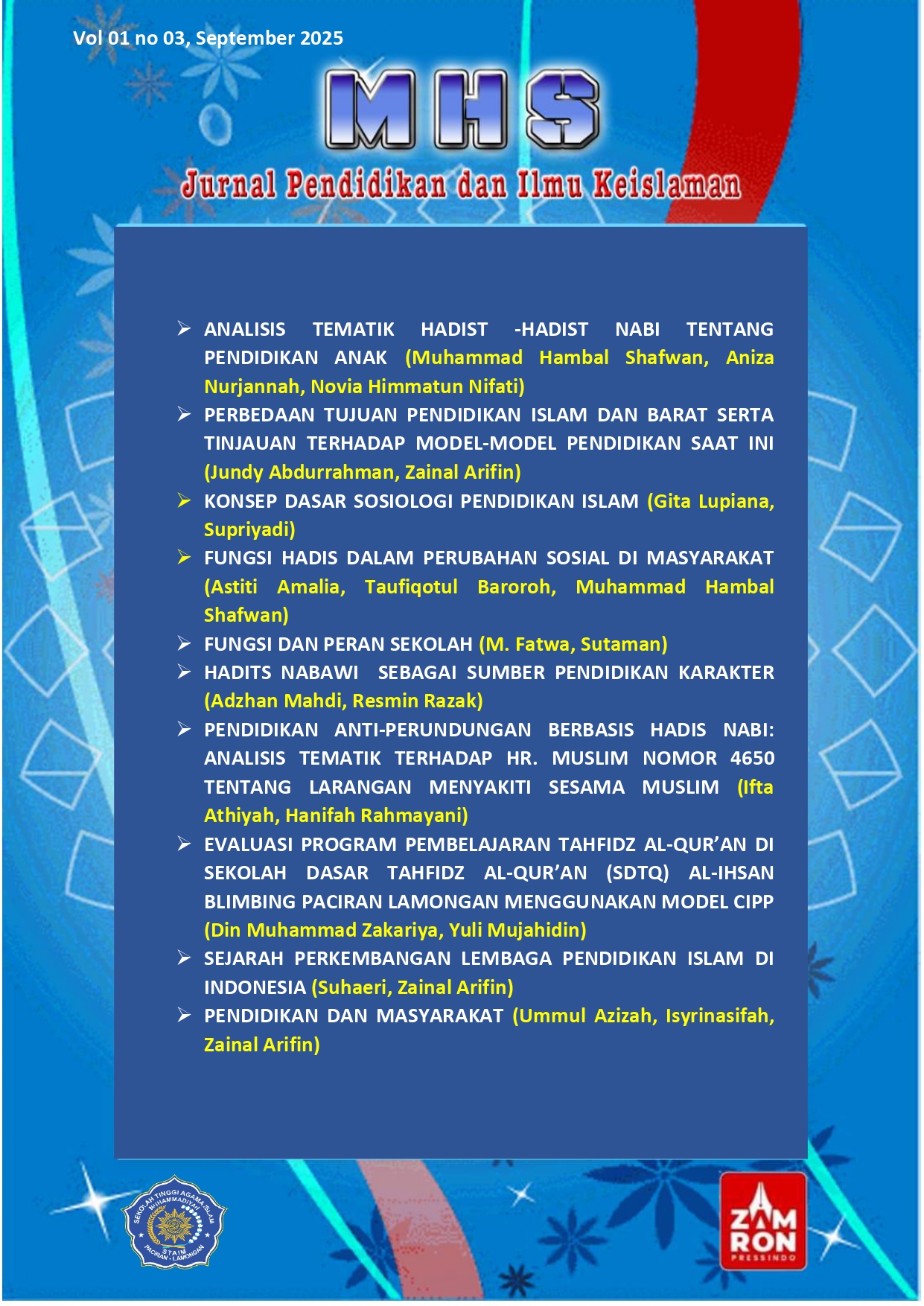FUNGSI HADIS DALAM PERUBAHAN SOSIAL DI MASYARAKAT
Abstrak
Hadis sebagai sumber ajaran Islam kedua setelah Al-Qur’an memegang peran penting dalam membentuk struktur sosial masyarakat Islam. Selain sebagai pedoman spiritual, hadis juga menjadi instrumen strategis dalam mendorong transformasi sosial dari tatanan yang tidak adil menuju masyarakat yang lebih manusiawi dan berkeadilan. Artikel ini bertujuan untuk menganalisis fungsi sosial hadis serta relevansinya dalam proses perubahan sosial baik di masa Rasulullah SAW maupun dalam konteks masyarakat kontemporer. Dengan metode kualitatif dan pendekatan studi pustaka (library research), artikel ini mengkaji teks-teks hadis yang relevan dengan nilai-nilai sosial, seperti keadilan, kesetaraan, persaudaraan, dan kepedulian sosial. Hasil penelitian menunjukkan bahwa hadis tidak hanya bersifat normatif, tetapi juga aplikatif dalam menjawab berbagai tantangan sosial.
Hadith, as the second primary source of Islamic teachings after the Qur'an, plays a vital role in shaping the social structure of Muslim society. Beyond its function as a spiritual guide, hadith serves as a strategic instrument for promoting social transformation—from an unjust societal order to one that upholds justice, humanity, and equity. This article aims to analyze the social function of hadith and its relevance in the process of social change, both during the time of the Prophet Muhammad (peace be upon him) and in contemporary contexts. Using a qualitative method with a library research approach, the study examines selected hadiths that emphasize social values such as justice, equality, solidarity, and social responsibility. The findings reveal that hadith is not merely normative but also practical in addressing diverse social challenges. Its messages can serve as foundational principles in building a more civilized, inclusive, and morally grounded society.











